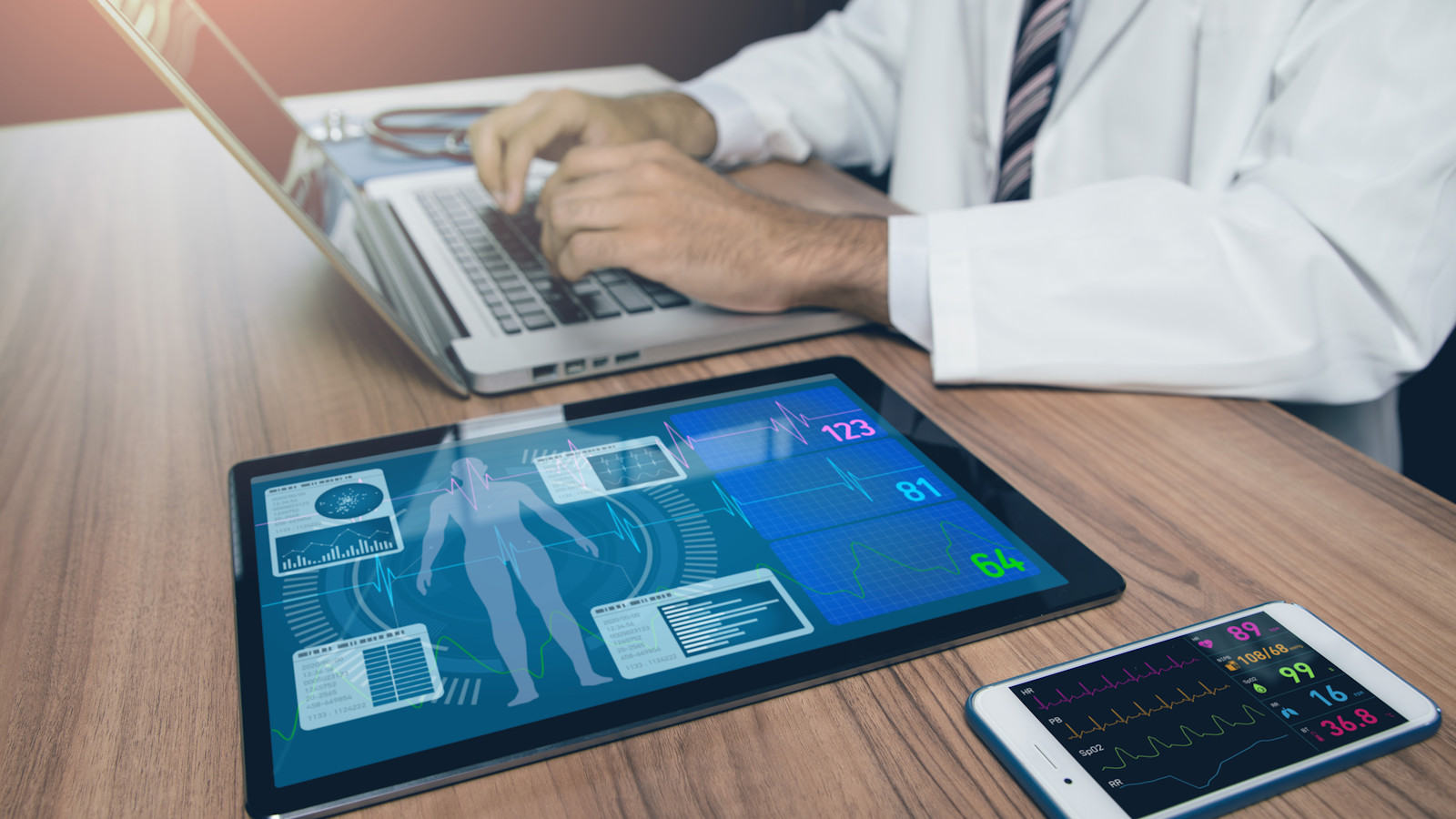The medical device industry is thriving with innovation, with ongoing endeavors to improve efficiency, productivity, and sustainability, as well as trends toward smarter and miniaturized devices.
In its Medical Device Predictions 2023 [1] report, GlobalData, a London-based data analytics and consulting company which Alleima partners with, has identified the top themes that will impact an increasingly digitalised industry. Here, we take a look at the key takeaways.
Industry insight: innovation post-pandemic
COVID-19 has caused shifts in healthcare, with major emerging trends including telemedicine and more molecular diagnostics. In 2023, most sectors are on recovery to the status quo, with clinical trial activity increasing and the demand for devices for elective procedures that built up during the pandemic now being addressed.
According to GlobalData, approximately 20% of healthcare device sales in 2022 were diagnostics related. Going forward, healthcare IT is likely to be the long-term revenue gainer, with new opportunities to transform healthcare. By 2030, GlobalData predicts that innovation will make or break the leading medical device companies, which may drive more M&A activity.
Digital health
Medical devices are becoming increasingly connected and digitised due to advantages for patients and providers, offering more efficient and personalised care. Cloud-based patient monitoring systems allow devices to be more portable while also gathering data that enables precision medicine. Major emerging trends in digital health include remote patient monitoring, telehealth, and electronic health records (EHR).
Remote patient monitoring
According to the GlobalData prediction report, the remote patient monitoring market will reach $760 million by 2030, with a compound annual growth rate (CAGR) of 3.3%.
We are experts in producing components that are used for remote patient monitoring, with perfectly configured medical wire for accurate sensing within the human body, as well as reliable transmission of patient data. Alleima has worked with medical device manufacturers to develop components for devices including continuous glucose monitors and pulse oximeters, which are seeing growing usage across the globe.
Wearable tech
The report predicts that wearable tech will grow to $54.4 billion to meet the need for remote patient care. Wearable technology devices in the healthcare industry are an effective way of capturing patient information for data-driven machine-learning algorithms to analyze users’ health conditions. Not only does wearable technology help patients to live their lives with minimal interruption, but biosensors and other remote patient monitoring devices, such as CGMs and oximeters, can help to profile and monitor physiological indicators.
Precision medicine
Digitalisation and wearable technology enables clinicians to combine and analyse genome information with other diagnostic information to identify patterns that can help to determine an individual’s risk of developing a disease, detect illness earlier, and determine the most effective interventions.
Precision medicine not only provides more efficient, personalised care, but it plays a vital role in preventive healthcare. As technology in this area becomes more advanced, early intervention will change the lives of patients across the globe.
Artificial intelligence
The AI industry will be worth $93 billion in 2023, up 12% from 2022 and the usage of AI in the medical sector is expected to continue to grow. AI requires volume, variety, and quality of user data. A manufacturer of medical wire components specifically designed for remote monitoring that enables patient data to be reliably transferred to a mobile device where patients and healthcare providers can check it, as well as allowing preventative treatment, including automated alerts should a patient be in danger.
Robotics
Robotics provides a solution to healthcare providers experiencing staff shortages, with surgical robots potentially helping to improve patient outcomes, reduce human error, and decrease the length of hospital stays.
We play a vital role in developing miniaturized medical devices and ultra-fine wire that can be used for these precise medical procedures, providing minimally invasive solutions and improving patients’ quality of life.
Regulations in medical devices
For the medical device industry, regulations have been notoriously stringent and challenging to navigate, to the point that they can hinder digital health innovation.
Over the last decade, increased collaboration among stakeholders has overcome some of the initial hurdles that have historically prevented medical devices from reaching consumers and patients. Ultimately, innovative products require more reflexive regulations with assay methods that are customized and suitable to the device in question, thus streamlining regulatory and scientific evaluation.
In its ongoing endeavor to stay ahead of trends and drive innovation, we keep up with regulatory changes and ensure strong post-market surveillance. This means that partners can rely on us to support them through design to final development.
Environmental, social, and governance (ESG)
Organizations are under growing pressure to act on environmental sustainability, and medical device manufacturers are no different. GlobalData predicts that the companies that thrive will be those that disclose ESG credentials. As a medical wire component manufacturer, we have a prime example of a company committed to meeting ESG goals and has recently committed to net zero by 2050 with support from the science-based targets initiative.
 "Remote patient monitoring devices became widely adopted during the Covid pandemic because reduced spread of infectious diseases and overall hospital burden. The trend continues today as remote patients monitoring devices provide better clinical insights due to extended data collection periods and as equally important by improving patient engagement. Better lifestyle choices are typically made as patients and/or caregivers monitor health parameters first hand with these devices", concludes Gary Davies, Business Unit Manager, Medical at Alleima.
"Remote patient monitoring devices became widely adopted during the Covid pandemic because reduced spread of infectious diseases and overall hospital burden. The trend continues today as remote patients monitoring devices provide better clinical insights due to extended data collection periods and as equally important by improving patient engagement. Better lifestyle choices are typically made as patients and/or caregivers monitor health parameters first hand with these devices", concludes Gary Davies, Business Unit Manager, Medical at Alleima.
